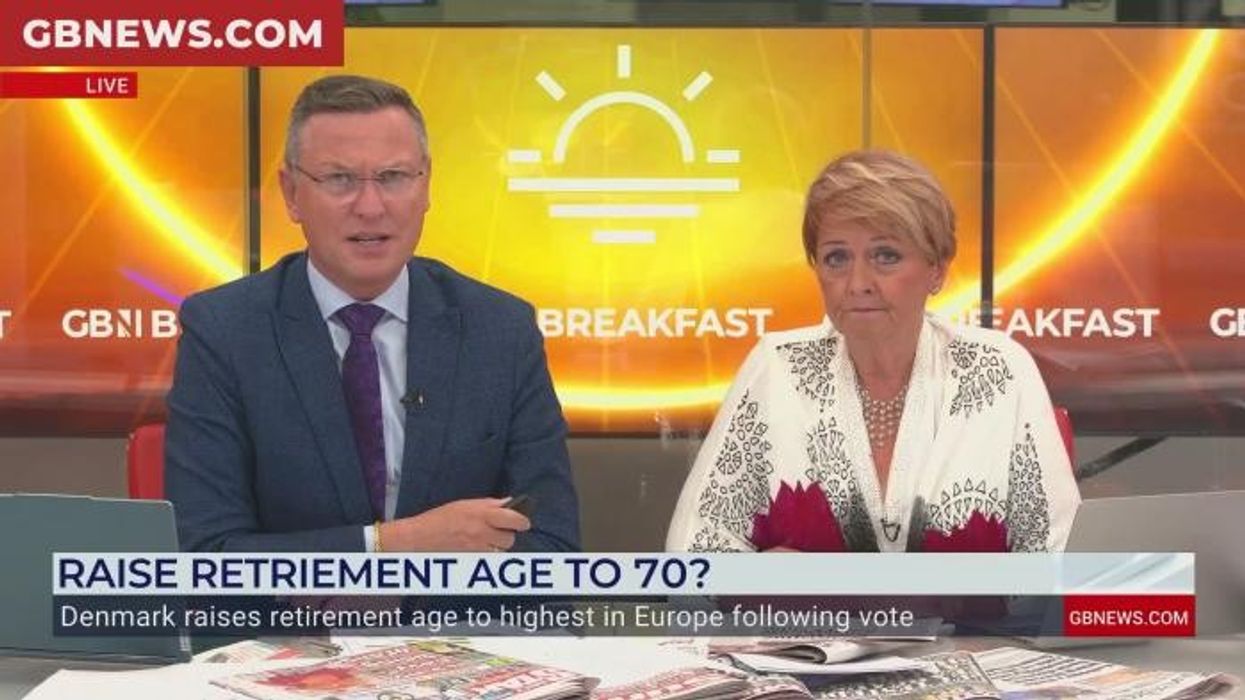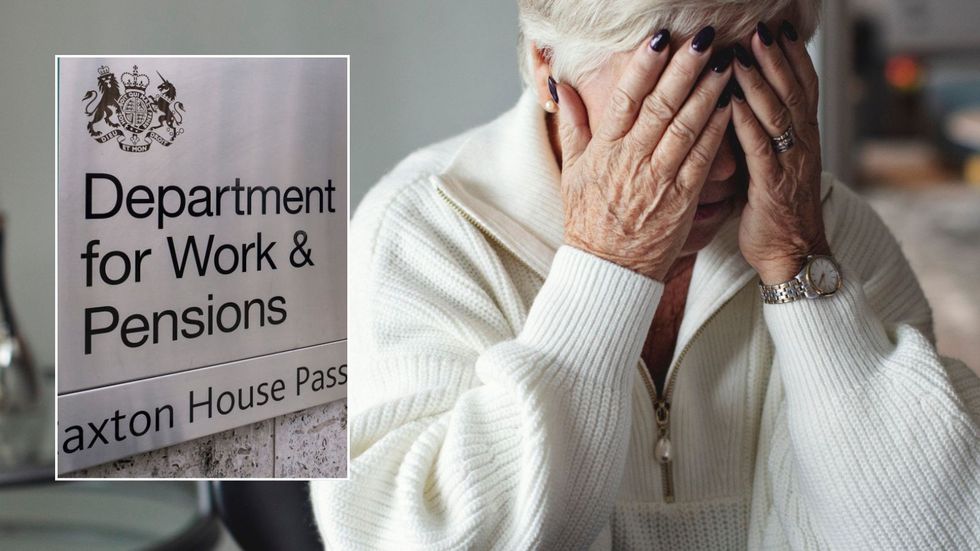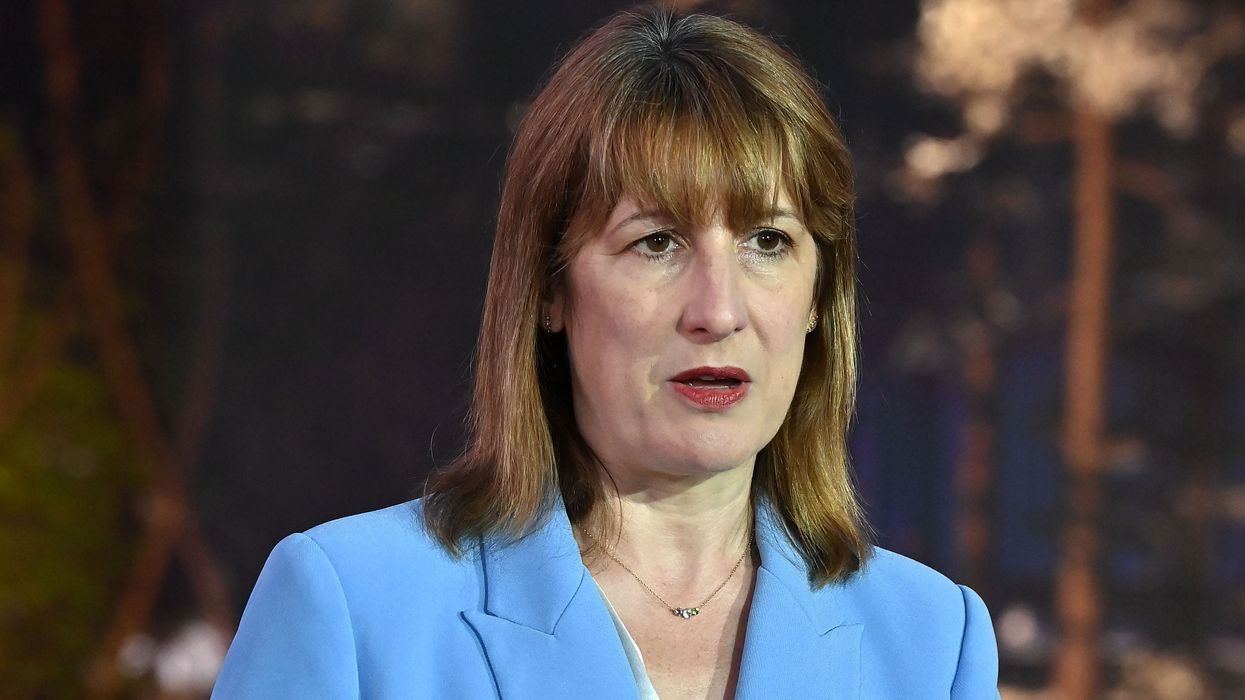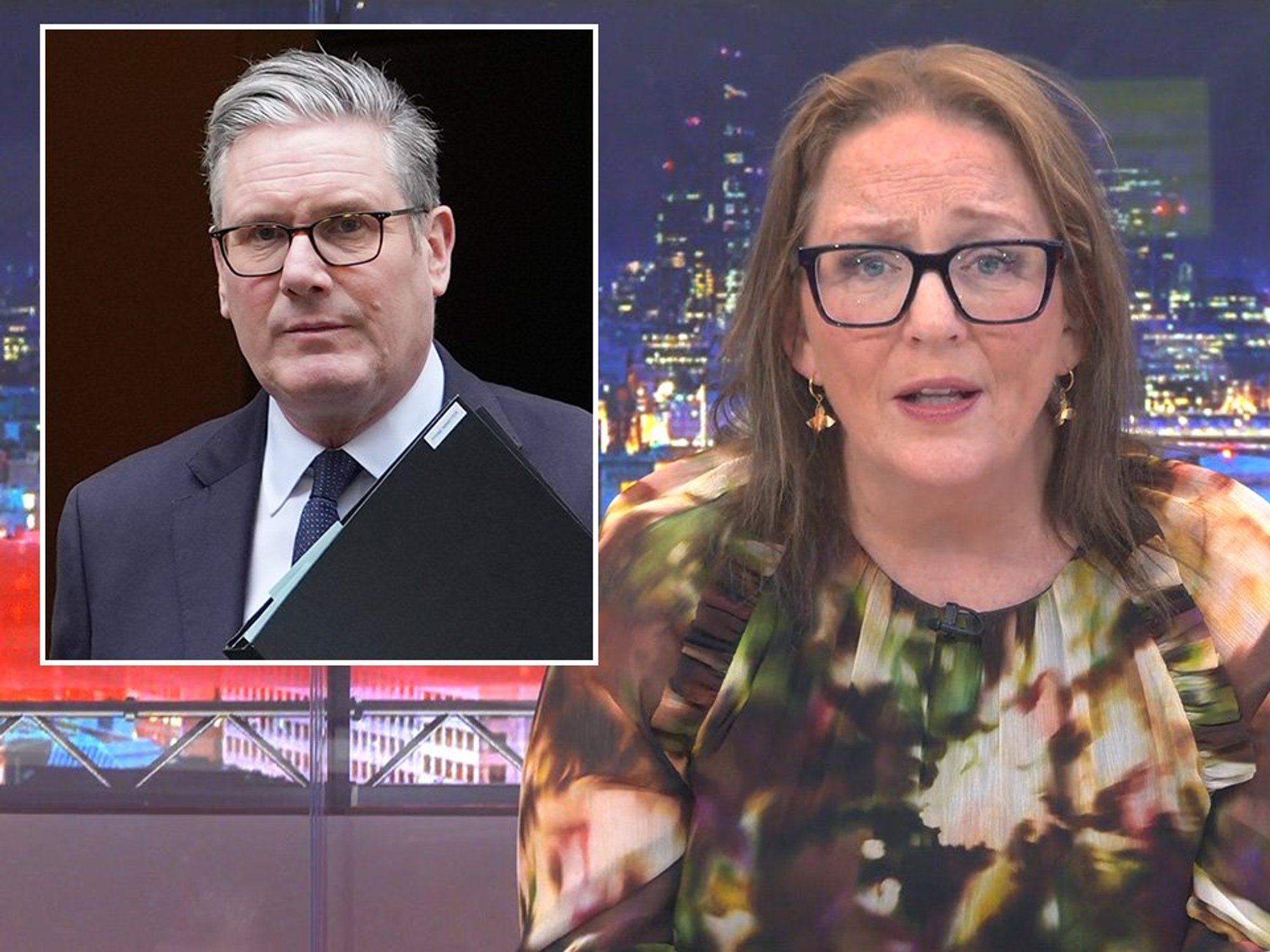State pension triple lock at risk as payments 'increasingly difficult to fund', shocking DWP figures find

State pension age rise ‘almost inevitable’: Ann Widdecombe issues warning as Denmark raises the bar |
GB NEWS

Under the state pension triple lock, retirement payment rates increase every year in line with either the rate of inflation, average wage growth or 2.5 per cent; whichever is highest
Don't Miss
Most Read
Analysts are blaming the state pension triple lock for placing Britain's benefits system as a financial tipping point, according to the latest figures from the Department for Work and Pensions (DWP).
Recently, the Government confirmed that annual state pension expenditure is forecast by nearly £18billion to £142billion in the year ending 2025. The dramatic surge in costs comes as the number of pensioners drawing state support climbed to 13.1 million in February 2025,.
This represents an increase of 210,000 recipients compared to twelve months earlier and has resulted in intensified scrutiny of the DWP system's long-term financial viability.
Based on DWP data, among the 13.1 million recipients, 4.7 million now receive the newer state pension introduced in April 2016, marking a rise of 720,000 individuals in just one year.
**ARE YOU READING THIS ON OUR APP? DOWNLOAD NOW FOR THE BEST GB NEWS EXPERIENCE**

The state pension is under more scrutiny
|GETTY
Weekly payments have witnessed substantial growth across all categories with average pensioner now receives £202.62 per week, representing an increase of £17.12 from February 2024.
In comparison, those on the new state pension system receive marginally more at £207.90 every week, while recipients under the pre-2016 arrangements collect £199.69.
Critics note the triple lock guarantee, which ensures pensions rise by the highest of inflation, average earnings growth or 2.5 per cent, has emerged as the primary driver behind these record increases.
Recent periods of elevated inflation and robust wage growth during and in the aftermath of the Covid-19 pandemic have triggered some of the most substantial cash rises in the system's history.
Do you have a money story you’d like to share? Get in touch by emailing money@gbnews.uk.

Pensioners have enjoyed a sizable payment boost thanks to the state pension triple lock
| GETTTYJon Greer, head of retirement policy at Quilter, highlighted the mechanism's impact: "The average payment has seen some of the largest cash increases on record, rising by nearly £19 a week in 2023 and then £17 a week from 2024. This is a direct result of the triple lock and recent high inflation and strong earnings growth."
While the protection offers immediate benefits to current pensioners, critics argue the mechanism lacks a sustainable benchmark and compounds the financial pressures created by Britain's ageing population.
Greer advocates for fundamental changes to the current framework, proposing that pension increases should be linked to a rolling average of earnings growth rather than the existing triple lock formula.
"The triple lock offers valuable protection for pensioners, but it has no clear benchmark and is becoming increasingly difficult to fund sustainably as a result of both the mechanism itself and the UK's shifting demographics," he stated.
MEMBERSHIP
- Trump just took a sledgehammer to the Kremlin and exposed Starmer's hand. This changes everything - Lee Cohen
- EXPOSED: New Brexit polling dismantled as top pollster explains how Labour 'gets away' with EU reset
- REVEALED: Sadiq Khan's 'key crime' update sparks furore as Mayor omits staggering sexual offences statistic
- From gardening to 'joyful' cooking lessons, inside 'woke' council's £30k cash giveaway to asylum seekers
- Our history is being written this week – and we are not even in the room - Dr Azeem Ibrahim
According to him, such an approach to the retirement benefit would provide flexibility during inflationary periods whilst ensuring fairness between retired and working populations.
The expert emphasised that individuals must prepare for potential policy shifts by building private savings and seeking professional guidance to secure adequate retirement income, regardless of future government decisions on state pension sustainability.
Additional support through pension credit reached 1.4 million individuals in February 2025, with 1.6 million beneficiaries when including partners. Women comprise approximately two-thirds of recipients, reflecting broader income disparities in retirement.
The system's accuracy remains relatively strong, with overpayment rates holding steady at 0.1 per cent, totalling £190million. Official errors account for £110million of overpayments, whilst claimant mistakes contribute £80 million. Fraud remains negligible at zero percent.
LATEST DEVELOPMENTS:

Rachel Reeves has avoided calls to reform the triple lock
| PAPension underpayments present a slightly larger concern at 0.3 per cent or £450million, primarily stemming from incorrectly recorded National Insurance (NI) contributions.
The Government has initiated the LEAP correction programme to address missing Home Responsibilities Protection years and enable affected pensioners to reclaim lost entitlements.
In response to calls for triple lock, a Downing Street spokesperson previously said: "What we recognise is that the public finances need to be brought back under control," he said.
"We've had a decade of the UK being exposed to global risks more and more and to interest rate fluctuations, and that is why we have non-negotiable fiscal rules, and that is our focus."
More From GB News










